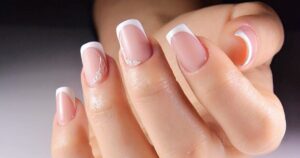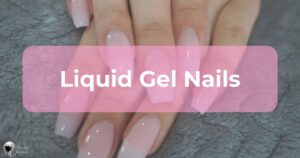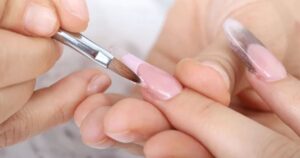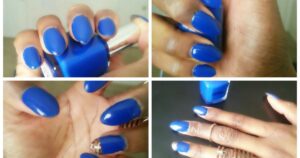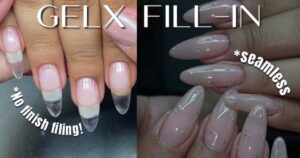Unlock the potential of your laser hair removal treatment without compromising your skin’s health. Just as a delicate flower needs protection from the scorching sun, your laser-treated skin requires special care when it comes to sun exposure. In this article, we delve into the impact of the sun on laser-treated skin, the importance of sun protection, recommended sunscreen application, and precautions to take when venturing out into the sun post-treatment. Join us as we explore the delicate balance between achieving hair-free skin and maintaining its radiance.
Key Takeaways
- Sun exposure after laser hair removal can increase sensitivity, hyperpigmentation, and burns.
- Direct sun exposure should be avoided for at least two weeks post-treatment.
- Sun protection is crucial to ensure optimal results and protect the skin from damage.
- Sunscreen with SPF 30 or higher should be applied generously to all treated areas at least 30 minutes before going outside.
Understanding the Impact of Sun Exposure on Laser-Treated Skin
While laser hair removal can offer long-lasting results, it is crucial to understand the potential effects of sun exposure on the skin that has been treated. Sun exposure after laser hair removal can have adverse effects on the treated skin, including increased sensitivity, hyperpigmentation, and even burns. The laser treatment can make the skin more susceptible to the harmful effects of the sun’s ultraviolet (UV) rays, which can lead to these unwanted complications.
It is recommended to avoid direct sun exposure for at least two weeks after the treatment and to protect the treated area with broad-spectrum sunscreen, protective clothing, and hats when going outside. It is important to note that individuals with darker skin tones may be more prone to developing hyperpigmentation due to sun exposure after laser hair removal. Therefore, it is essential to follow proper sun protection measures to ensure optimal results and minimize the risk of any complications.
The Importance of Sun Protection Post-Laser Hair Removal
How crucial is sun protection after laser hair removal? Sun protection is extremely important after laser hair removal to ensure optimal results and protect the skin from potential damage. Laser treatment can make the skin more sensitive to the sun, increasing the risk of sunburn, hyperpigmentation, and other complications. To prevent these issues, it is crucial to follow proper sun protection measures.
This includes applying broad-spectrum sunscreen with an SPF of 30 or higher, wearing protective clothing, such as hats and sunglasses, and avoiding direct sun exposure during peak hours. Below is a table highlighting the key sun protection measures to follow post-laser hair removal:
| Sun Protection Measures | Description |
|---|---|
| Apply sunscreen | Use a broad-spectrum sunscreen with SPF 30 or higher. Reapply every 2 hours. |
| Wear protective clothing | Cover the treated area with clothing, hats, and sunglasses to minimize sun exposure. |
| Seek shade | Stay in the shade during peak sun hours, typically between 10 am and 4 pm. |
| Avoid tanning | Refrain from using tanning beds or sunbathing, as they can increase the risk of skin damage. |
Recommended Sunscreen SPF and Application for Laser-Treated Skin
Applying sunscreen with a minimum SPF of 30 and ensuring proper application is essential for protecting laser-treated skin from harmful sun exposure. Laser hair removal makes the skin more vulnerable to UV radiation, so it is crucial to take extra precautions. Look for broad-spectrum sunscreens that protect against both UVA and UVB rays. These sunscreens create a barrier that reflects or absorbs the sun’s rays, preventing them from damaging the skin.
It is recommended to apply sunscreen generously to all laser-treated areas at least 30 minutes before going outside. Reapply every two hours, or more frequently if sweating or swimming. By diligently following these sunscreen guidelines, you can minimize the risk of sun damage and maintain the results of your laser hair removal treatment. Transitioning to the next section, let’s now explore the timeframe for avoiding sun exposure after laser hair removal.
Timeframe for Avoiding Sun Exposure After Laser Hair Removal
The recommended timeframe for avoiding sun exposure after laser hair removal is crucial for optimal healing and to minimize the risk of complications. It is generally advised to avoid direct sun exposure for at least 2 weeks after the treatment. During this time, it is important to protect the treated areas from the sun’s harmful rays. Here are some guidelines to follow:
- Stay indoors or seek shade: Avoid spending prolonged periods of time in direct sunlight, especially during peak hours when the sun’s rays are the strongest.
- Wear protective clothing: Cover the treated areas with loose-fitting clothing, hats, or scarves to provide an additional barrier against the sun.
- Apply sunscreen: If you must be in the sun, apply a broad-spectrum sunscreen with a high SPF (30 or above) to the treated areas. Reapply every 2 hours or as directed by your dermatologist.
How Sun Exposure Can Affect Laser Hair Removal Results
Sun exposure can significantly impact the effectiveness and longevity of laser hair removal results. After undergoing laser hair removal treatment, it is crucial to protect the treated areas from excessive sun exposure. The laser targets the pigment in the hair follicles, and when the skin is tanned, it contains more pigment, making it more susceptible to absorbing the laser energy. This can lead to potential complications such as burns, blistering, or hyperpigmentation.
Sun exposure can stimulate hair growth, which contradicts the purpose of laser hair removal. To ensure optimal results, it is recommended to avoid direct sun exposure for at least two weeks before and after each treatment session. It is also advisable to use a broad-spectrum sunscreen with a high SPF to protect the treated areas when going outside.
Precautions to Take When Going in the Sun After Laser Hair Removal
When going out in the sun after laser hair removal, it is important to take certain precautions to protect the treated areas. Exposure to the sun can cause the skin to become more sensitive, leading to potential complications and adverse effects on the treated skin. To ensure the best results and minimize any risks, consider the following precautions:
- Apply sunscreen: Use a broad-spectrum sunscreen with a high SPF to protect the treated areas from harmful UV rays. Apply it generously and reapply every two hours, especially if you’re spending an extended period outdoors.
- Seek shade: Avoid direct sun exposure as much as possible, especially during peak hours when the sun’s rays are the strongest. Seek shade under an umbrella, wear a wide-brimmed hat, or use protective clothing to shield the treated areas.
- Be patient: Give your skin time to heal and recover from the laser treatment before exposing it to prolonged sun exposure. It is recommended to wait at least two weeks before exposing the treated areas to the sun.
Managing Sunburn and Irritation on Laser-Treated Skin
To effectively manage sunburn and irritation on laser-treated skin, it is crucial to follow proper skincare practices and utilize soothing remedies. After laser hair removal, the skin becomes more sensitive to sunlight, making it prone to sunburn. It is important to avoid sun exposure as much as possible, especially during peak hours when the sun is strongest. When going outside, always apply a broad-spectrum sunscreen with a high SPF to protect the treated area. In case of sunburn, apply a cool compress to soothe the skin, and avoid further irritation by wearing loose-fitting clothing.
Moisturizing the affected area with a gentle, fragrance-free lotion can help alleviate discomfort. Properly managing sunburn and irritation is essential to ensure the best results from laser hair removal and promote healthy, rejuvenated skin. Now, let’s explore the long-term effects of sun exposure on the efficacy of laser hair removal.
Long-Term Sun Exposure Effects on Laser Hair Removal Efficacy
Long-term sun exposure can have significant effects on the efficacy of laser hair removal treatments. Prolonged sun exposure can cause the skin to darken, making it difficult for the laser to target the hair follicles effectively. To ensure optimal results, it is important to protect the treated areas from the sun by wearing protective clothing, using sunscreen, and avoiding sun exposure during peak hours. Taking these protective measures can help maintain the effectiveness of the laser hair removal treatment.
Sun’s Impact on Efficacy
Excessive sun exposure can significantly diminish the efficacy of laser hair removal treatments over time. The sun’s rays can damage the skin and affect the targeted hair follicles, making it harder for the laser to effectively remove the hair. Here are three reasons why sun exposure can impact the efficacy of laser hair removal:
- Increased melanin production: Sun exposure stimulates the production of melanin, the pigment responsible for the skin’s color. This increased melanin can interfere with the laser’s ability to target the hair follicles, resulting in less effective hair removal.
- Skin sensitivity: Sunburns or prolonged sun exposure can make the skin more sensitive and prone to irritation. This can make laser hair removal treatments more uncomfortable and increase the risk of side effects such as redness, swelling, or blisters.
- Hyperpigmentation risk: Sun exposure after laser hair removal can increase the risk of hyperpigmentation, which is the darkening of the skin in treated areas. This can lead to uneven skin tone and negate the desired results of the treatment.
To ensure optimal results and minimize the risk of complications, it is important to protect your skin from the sun after laser hair removal treatment.
Protection Measures Post-Treatment
Proper protection of the treated area’s skin is crucial to maintain the long-term efficacy of laser hair removal, and a combination of sunscreen and protective clothing is recommended. After undergoing laser hair removal, it is essential to shield the treated area from excessive sun exposure. Sunlight contains harmful ultraviolet (UV) rays that can damage the skin and compromise the results of the treatment. UV rays can cause hyperpigmentation, skin discoloration, and even increase the risk of skin cancer.
To prevent these adverse effects, it is recommended to apply a broad-spectrum sunscreen with an SPF of 30 or higher on the treated area before sun exposure. Wearing protective clothing such as wide-brimmed hats and long-sleeved shirts can provide an extra layer of defense against the sun’s harmful rays. By adopting these protection measures, you can ensure the long-term effectiveness of your laser hair removal treatment.
FAQ’s
Can I Tan My Skin After Laser Hair Removal?
Tanning the skin after laser hair removal is generally not recommended as it can increase the risk of complications such as hyperpigmentation and sunburn. It is important to protect the treated area from sun exposure and follow post-treatment instructions provided by your healthcare professional.
How Long Should I Wait Before Going to the Beach After Laser Hair Removal?
After laser hair removal, it is recommended to wait at least 48 hours before exposing the treated area to direct sunlight or tanning beds. This allows the skin to heal and reduces the risk of complications such as hyperpigmentation or burning.
Can I Use Tanning Beds After Laser Hair Removal?
After laser hair removal, it is generally recommended to avoid tanning beds as they can increase the risk of skin damage and complications. Protecting your skin from sun exposure is crucial for optimal healing and achieving the desired results.
Will Going in the Sun Affect the Permanence of My Laser Hair Removal Results?
Exposure to the sun after laser hair removal can potentially affect the permanence of the results. Ultraviolet (UV) radiation can cause hyperpigmentation, and skin damage, and reduce the effectiveness of the treatment. It is advisable to avoid sun exposure and use sunscreen for optimal outcomes.
Can I Wear Makeup With SPF After Laser Hair Removal?
After laser hair removal, it is generally recommended to avoid direct sun exposure and to protect the treated area from harmful UV rays. Wearing makeup with SPF can provide additional protection, but it is important to follow post-treatment guidelines provided by your laser hair removal professional.
Conclusion
In conclusion, it is crucial to avoid sun exposure after laser hair removal to ensure optimal results and prevent complications such as hyperpigmentation and skin damage. Sunscreen with a high SPF should be applied regularly to protect the treated skin. Long-term sun exposure can also impact the efficacy of laser hair removal. Therefore, it is important to follow the recommended guidelines and take necessary precautions when going in the sun after laser hair removal. Remember, protecting your skin from the sun is essential for maintaining the desired outcome of the treatment.




